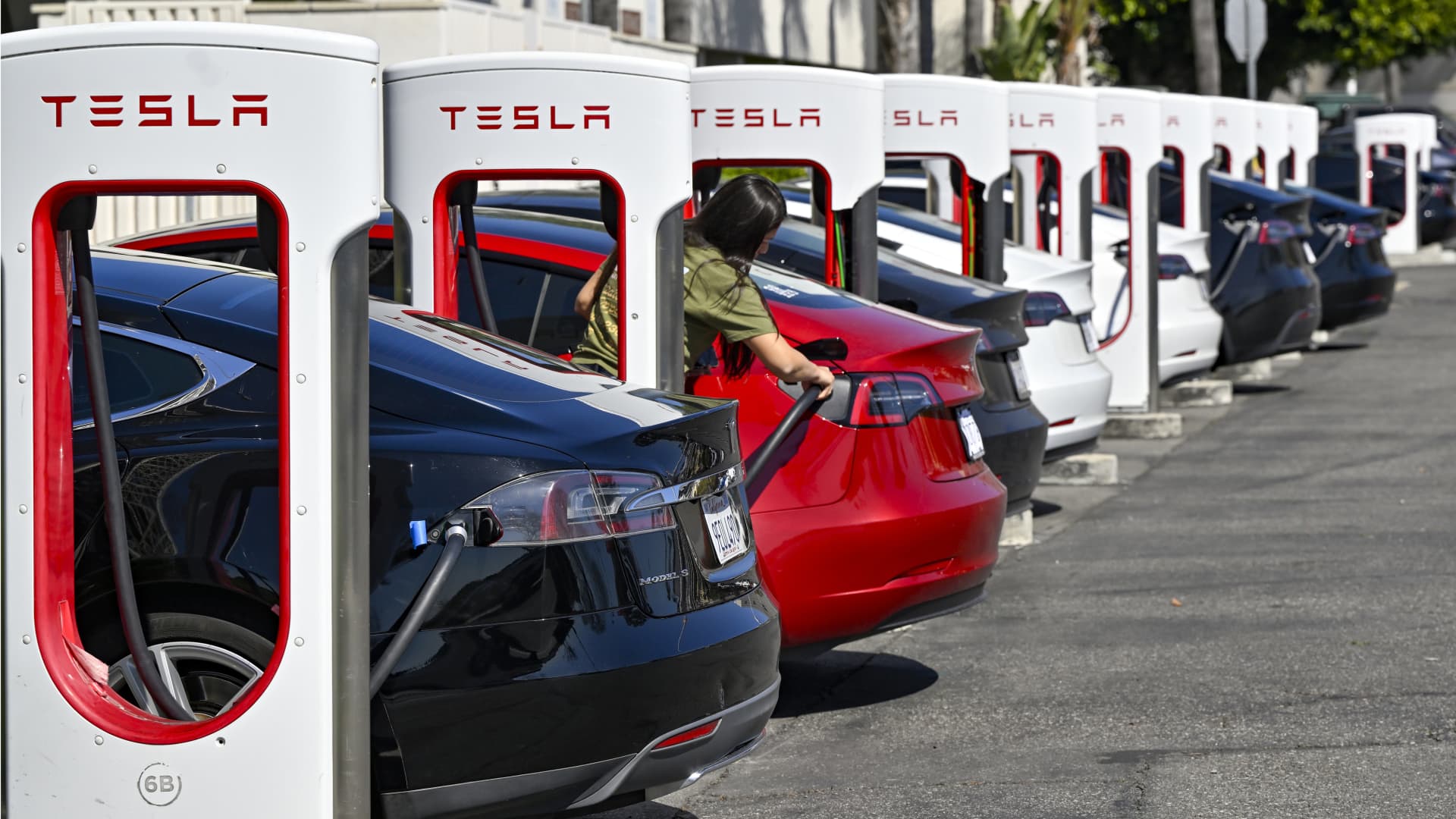Here's why so many electric vehicle startups fail
The EV revolution is a tempting proposition for entrepreneurs. But the business is not for the faint of heart. Successes tend to have a few common traits.

As the electric vehicle industry faces a string of high-profile failures, several startups that have surfaced in recent years have underestimated their capital needs by billions of dollars, industry insiders said.
Many of the companies that have tried to bring products to market or go public, especially through Special Purpose Acquisition Companies, or SPACs, are struggling. At least 30 EV companies have either suspended their operations, gone quiet or faced the risk of bankruptcy in the last decade, according to AutoForecast Solutions, an industry research and forecasting group.
"Tesla, outside of the Chinese, is kind of the first automaker to start in half a century," said Mark Wakefield, managing director at AlixPartners. "Rivian and Lucid are sort of the next two closest of the Western ones. Both of them have eviscerated $10 billion. So it's interesting to see these other small startups who raise $1 billion or $2 billion and they think that's enough. It's not even close."
The growing EV market has benefited from the support of governments seeking to meet climate goals, and captured the attention of Wall Street. Tesla saw so much success with investors that many skeptics called it a "cult stock."
Tesla controlled more than 50% of the EV market in the U.S. in 2023, sold more than 650,000 vehicles in the country and raked in more than $82 billion in vehicle sales worldwide.
EVs made up 8% of U.S. new car sales that year — and their share of the market is set to grow despite slower-than-expected adoption. EVs are expected to be 46% of new vehicle sales by 2030 — nearly 8 million units.
"Startups, by definition, love vast addressable markets," said Pavel Molchanov, managing director at Raymond James. "This is venture capital pitch slide No. 1: What is our addressable market?"
But reality sets in soon enough.
"Compared to 10 years ago, it's more attractive now to start a car company," Wakefield said. "But compared to starting a new social media app or a new consumer service or something else that just doesn't consume billions before you even start, before you even get your first dollar of revenue? It is tough. Just look at the capital returns — not the stock prices, the actual returns on capital. They're not very attractive. This is a highly capital-intensive, competitive industry."
Even deep-pocketed companies in other industries that have planned forays into automotive dreams have thrown in the towel. Apple shut down its car project, as did British appliance maker Dyson.
In some ways, we are reliving the early days of the auto industry in America. At the dawn of the 20th century, there were hundreds of small automakers and parts firms spread throughout Detroit and the surrounding region. After about a decade of consolidation, and countless failures, there remained only the handful of U.S. companies that we know of today: Ford, GM, and Chrysler, now part of Stellantis.
The firms that succeeded at that time not only consolidated but brought a lot of their supply chain in house. That is happening again, now in the EV segment, said John Paul MacDuffie, a professor at the University of Pennsylvania's Wharton School of Business. The most successful EV firms now — Tesla and China's BYD — are highly vertically integrated, just like GM was when it ascended to the top of the industry.
"Even if there's a flurry of and a ferment of a lot of new firms right now, history would tell us it won't last," MacDuffie said.

 Tfoso
Tfoso 





























.jpg&h=630&w=1200&q=100&v=154b70b92d&c=1)


